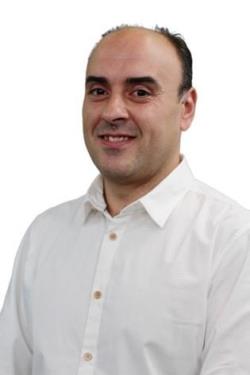
Dr. Luis Fernando Sánchez-Barba was born in Valdepeñas (Spain) in 1975. From 1993 to 1997 he studied chemistry at the Facultad of Ciencias Químicas de Ciudad Real and received a MS in inorganic chemistry at the University of Castilla-La Mancha in 1998. Then, he joined the group of Prof. Antonio Otero at the University of Castilla-La Mancha (Spain), where he obtained his PhD in 2002 for his work on the studies of new group 4 and 5 complexes with heteroscorpionate systems of new generation. Later, he moved as a Marie Curie fellow to the School of Chemical Sciences and Pharmacy in Norwich (England) with Prof. Manfred Bochmann, and worked on the production of advanced macromolecular architectures and functional materials via lanthanides catalysis during 2004. Since 2009, he has been working as an Inorganic Chemistry Lecturer at the department of Biology and Geology, Physics and Inorganic Chemistry in the University Rey Juan Carlos in Madrid. His main research interests are the design of new heteroscorpionate group 2 (and analogous)-based complexes applied to both the Ring-Opening Polymerization of cyclic esters for the production of polymeric bio-renewable materials, and more recently, CO2 valorisation processes through its transformation on organic molecules and materials industrially demanded.
luisfernando.sanchezbarba@urjc.es